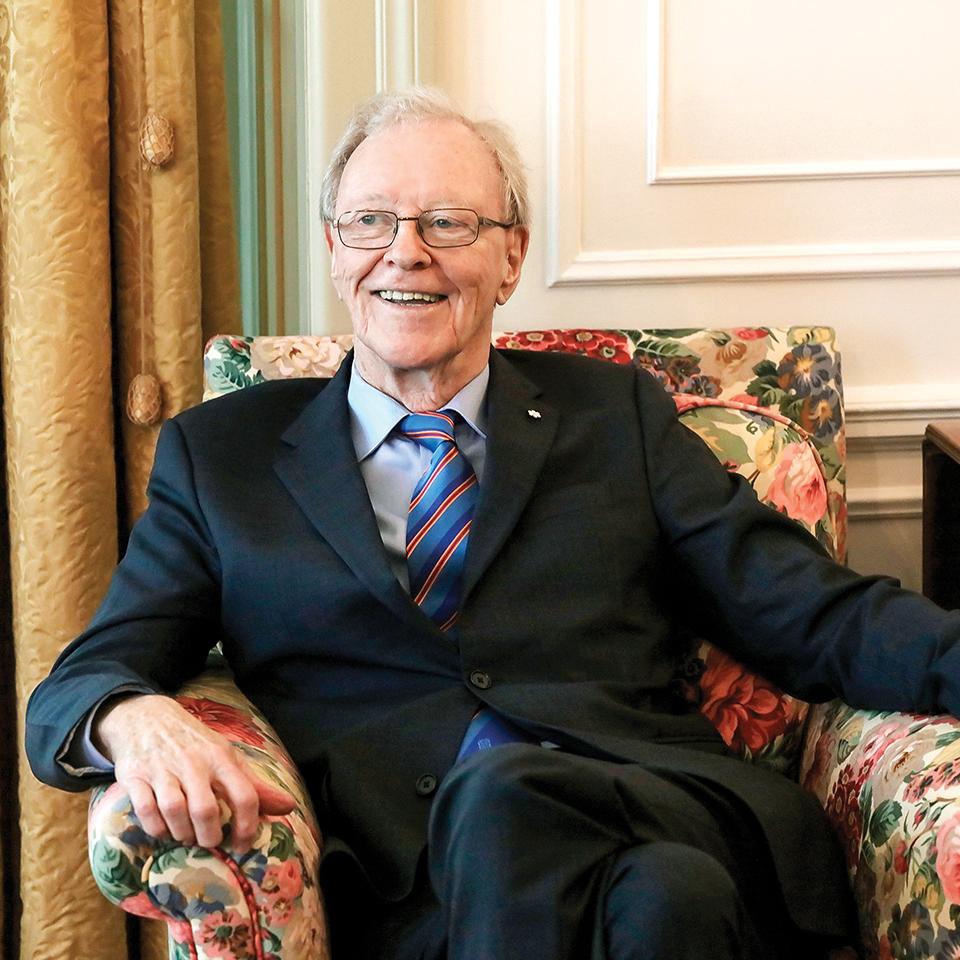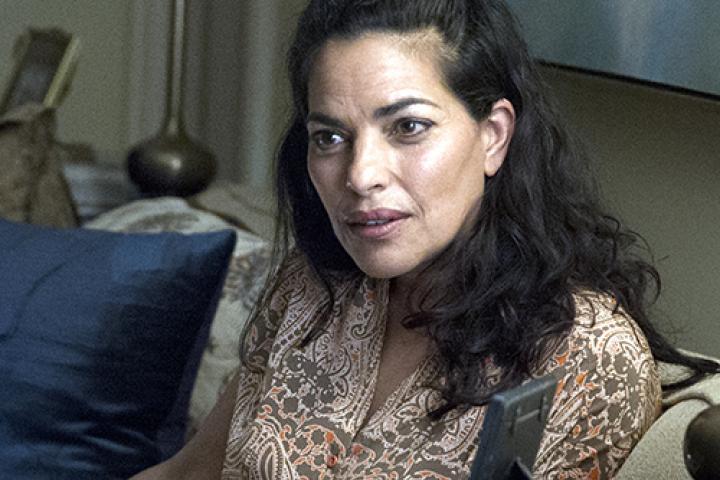A year ago, in the midst of the first wave of the COVID-19 pandemic, Canada was struggling to find the equipment needed to protect health-care workers and give the breath of life to people gasping for oxygen.
Dr. Arthur McDonald, Nobel laureate and notable figure at Queen’s, had pulled together a team to make ventilators, a critical need inside Canadian intensive care units.
Dr. McDonald needed a key piece of equipment or the project could be set back months. So he turned to fellow Nova Scotian Donald Sobey.
Mr. Sobey, with his brothers Bill and David, had built the family business to become a national player in the food industry. He was equally known as a willing partner for people with a good idea and great need.
His son, Rob Sobey, remembers sitting in by speaker phone on Easter Monday 2020, as Dr. McDonald made his urgent pitch.
His father “knew it was about saving lives. There was no pushback, no questions. He just said, ‘We’re in,’” with $250,000 through the Donald R. Sobey Foundation.
Donald Creighton Rae Sobey was born in small-town Nova Scotia. The family legend is that he spent a lot of his youth repacking bags of potatoes. Hard work teaches lessons, and it showed this particular young man what he did not want to do.
While his older brothers were involved in the operations of the growing business, Mr. Sobey had a gift for figures that led his parents, Frank and Irene, to believe he would benefit from a university education.
“Prior to that we had no connection with Queen’s,” Rob said, but the school had a good reputation and it was also strategically located between Toronto and Montreal.
“He really wanted to go,” Rob said, and in 1953 Mr. Sobey entered the Commerce class of 1957.
He enjoyed his time in Kingston. He studied hard but he also refined his sense of humour.
“He often recounted with pride that the dean at the time would tell his class of Commerce ’57 that they were, without doubt, the worst Commerce class ‘ever at Queen’s,’” Rob said. The story “gave him an opportunity to laugh at himself.”
Mr. Sobey was under no obligation to go home to do the company books, but after just a year of law at Dalhousie followed by a short stint in London, England, with Wood Gundy, he joined the family firm.
He rose to become president of Empire Company Ltd., the chain’s parent company, from 1969 until he was appointed chair of the board in 1985. He played a key role in expanding a regional supermarket company into a national player. Over the years, he sat on other boards, including as chair of the National Gallery of Canada and Maritime Tel & Tel, and as a director of the World Wildlife Fund.
He also maintained a connection with his alma mater. In 1998, that connection led to the founding, with his son, Rob (also a Queen’s alumnus), of the D&R Sobey Atlantic Scholarship, which each year helps up to eight Atlantic Canadian high school students enter Commerce at Queen’s. There have been 148 Sobey Scholars – and counting – and about $6.6 million distributed.
Mr. Sobey saw the scholarship as recreating his own journey.
“[Queen’s] matured him, helped him become who he was,” says Rob.
For Charlotte MacDonald (Com’13), being a Sobey Scholar served that exact purpose.
“I grew up between Halifax and rural Prince Edward Island,” she said by email. “I went to a small high school with a graduating class of 32.
“Studying business was not a very common path from my school, but I was curious enough about it to catch wind of the Sobey scholarship and the [Smith] School of Business. The scholarship introduced me to the idea of leaving Atlantic Canada for my undergraduate education and attending the best business school in the country.”
Ms. MacDonald went on to obtain a Harvard MBA and a position as a team leader with the Boston Consulting Group, serving clients in the retail and consumer goods sector, including in the food industry.
“A ‘full circle’ moment,” she says.
The scholarship isn’t Donald Sobey’s only contribution to the university. In 2008, Mr. Sobey established the Donald R. Sobey Professorship to support research by a Smith faculty member.
In addition to his passions for business and education, Mr. Sobey also had a lifelong interest in the visual arts.
In a 2016 interview, he said his interest was sparked by a visit as a high-school student to Mount Allison University in New Brunswick, where work by Alex Colville, another successful Nova Scotian, caught his attention.
“For the first time, I saw Canadian art that I really appreciated. Before that I had seen biblical art and ancient art, but there was no Canadian art that I could relate to and, all of a sudden, I saw [Alex] Colville,” Mr. Sobey said.
“One fellow took me aside and said, ‘If you are going to buy art, why don’t you just buy Canadian art. You’re a Canadian.’ And I followed that advice and my father followed it, too.”
His own collecting included Cornelius Krieghoff, Lawren Harris, and James Wilson Morrice, as well as modern works by Brian Jungen, who would be the first winner of Mr. Sobey’s biggest contribution to Canadian visual art, the Sobey Art Award.
The Sobey Award is today one of the largest visual art prizes in the world.
Mr. Sobey said in 2016 that “my father always said about his father, ‘If you give a dime into the community, somehow it comes back to you as a quarter.’ Things work that way. That’s what giving back was. You don’t do it for that reason.”
In this case, the project involved Ray Cronin, then the curator at the Art Gallery of Nova Scotia. The first award was handed out in 2002. More than 250 longlisted, shortlisted, and winning artists have been recognized since. Today it is administered through the National Gallery.
Rob Sobey assumed the leadership of the award in 2006, but his father was always available for an appearance… with coaxing.
In business, Mr. Sobey was also a decider-in-chief. His son recalls, “he wasn’t afraid to see what works. But it was a calculated chance. If it didn’t work, he needed to know where the back door was.”
Mr. Sobey and brother David were known inside the family as Statler and Waldorf, the cantankerous hecklers from The Muppet Show.
The brothers both retired from the company board in September 2015.
“Both of them said thank you and then Dad grabbed the mic and he said, ‘We are finally coming off the balcony, but rest assured we are still backstage.’”
Donald Creighton Rae Sobey died in March at age 86 of undisclosed causes.

